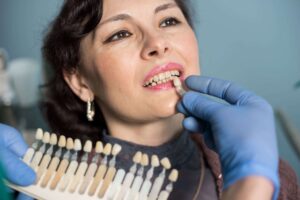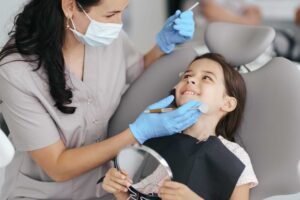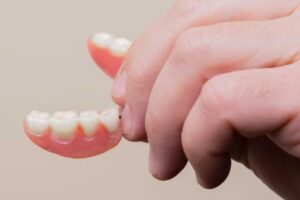Common Types of Dental Injuries in Sports And How To Prevent Them

Common Types of Dental Injuries in Sports And How To Prevent Them
Getting ready for a big game? Make sure to wear proper sports gear to prevent any injury, including when it comes to your mouth. Orofacial and dental trauma remains one of the most frequent injuries in any sport. This rings especially true for contact sports such as boxing, football, rugby, and more. Unfortunately, any untreated dental injuries in sports may lead to more severe and expensive problems.
What Are the Common Dental Injuries In Sports?
Cracked Tooth
When you accidentally take a blow to your face during a game, it could lead to a cracked or fractured tooth. Longitudinal cracks that run across the surface of a tooth are called superficial cracks; they are relatively low risk for dental health. However, if a crack begins at the crown and extends downward, it’s a genuine cracked tooth that might lead to further problems.
You may experience the following symptoms if you have a cracked tooth:
- Sharp pain with every bite.
- Sudden tooth pains that come and go.
- Pain during eating and drinking (gets worse when the food or drink is hot or cold).
Fractured Roots
If your face is hit at a certain angle while playing sport, then you might get a fractured root. A fractured root begins at the root of your teeth and works its way to the tooth’s visible surface. Since these injuries are often invisible, some people only notice an issue when they get an infection. Further investigation then reveals that they have fractured roots.
Tooth Intrusion
Most dental injuries in sports usually involve teeth getting knocked out, but in some cases, the tooth is driven back into the jawbone. This is what you call a tooth intrusion. This type of dental injury occurs most commonly with children with baby teeth” as the bones that hold their tooth sockets (the alveolar bones) are still soft compared to the adult ones. However, it can still happen with adult athletes. This kind of tooth trauma requires ample healing time, which can put you out of action for an extended period.
- The complications you can get from a tooth intrusion include:
- Death of the tooth (necrosis) or the tooth being damaged beyond recovery
- Root resorption (a shortening of the roots)
- Ankylosis (the fusion of the injured tooth’s root to the alveolar bone)
While all the situations listed above are important reasons to see a dentist, the most important reason is often overlooked: getting a general check-up.
Regular dental visits for general check-ups can go a long way to preventing the situations listed earlier. Dentists will clean your teeth, check for any teething issues (pun intended), advise you about better oral care and even make recommendations for dental procedures you may need to get.
Avulsed Teeth
Another common sports-related dental injury is avulsed teeth. This is an injury that completely dislodges a tooth from its socket. An avulsed baby tooth should be left alone until a permanent tooth grows. An avulsed adult tooth can completely be remedied by reinserting your tooth within 60 minutes after avulsion. However, if that’s not possible, the best treatment option is dental implants. If you can’t have your natural tooth back, dental implants can do the same job and look natural.
How Can Dental Injuries Be Prevented?
Dental injury prevention involves protecting your jaw and teeth. Luckily, many sports require you to wear protective gear to safeguard these sensitive parts of your body. These protections have kept more than 200,000 injuries from occurring annually.
Mouthguards
For athletes who do contact sports, a mouthguard is a must. A mouthguard is designed to protect you against mouth injuries including, broken teeth, cut lips, broken jaws, and more.
There are three types of mouthguards:
Stock Mouthguards
Stock mouthguards are available over the counter and are pre-formed and ready to wear. They’re usually one-size-fits-all and inexpensive, but, because of that, they can be uncomfortable and offer less protection than other options.
Custom-fitted Dental Mouthguards
Custom-fitted dental mouthguards offer the best protection against any sports injury. These types of mouthguards are made by getting an impression of your teeth and moulding them in a dental office or lab. They are specifically fitted precisely for your mouth for improved comfort and better protection.
Helmets With Faceguards
A high-quality helmet with a faceguard gives you another layer of protection when playing sports with hard physical contact, such as American football and ice hockey.
Take Better Care of Your Teeth With Langmore Dental!
Dental injury, if not prevented or treated correctly, can hugely impact your life and athletic career. Unfortunately for many athletes, injuries are an occupational hazard. That’s why it’s crucial to take measures to prevent dental injury. Get a custom-fitted dental mouthguard from Langmore Dental for your game! Our mouthguards fit your mouth perfectly, so you can give your teeth improved protection when you play on the field.
If worse comes to worst and prevention can’t stop an injury, Langmore Dental can also take care of your dental injuries. We can provide temporary and permanent dental injury treatment, so contact our clinic for a check-up today!








